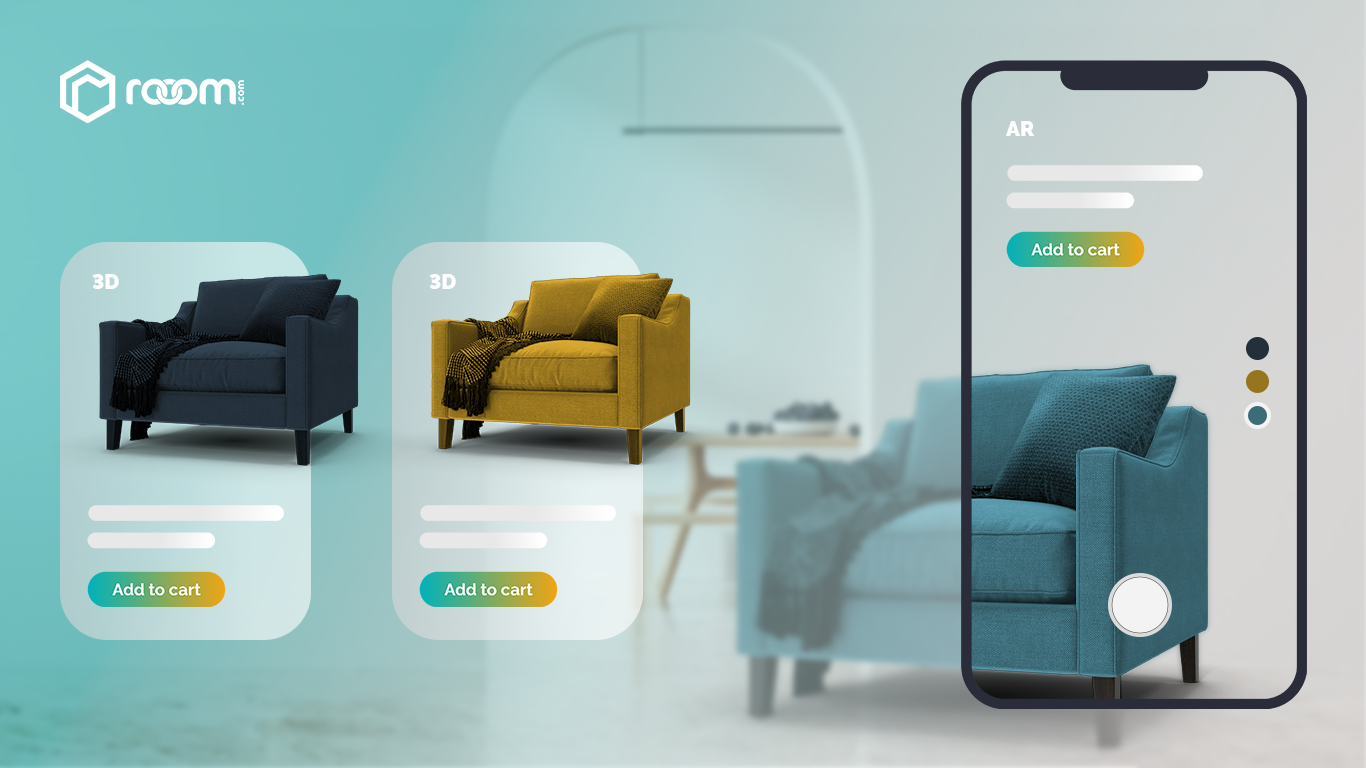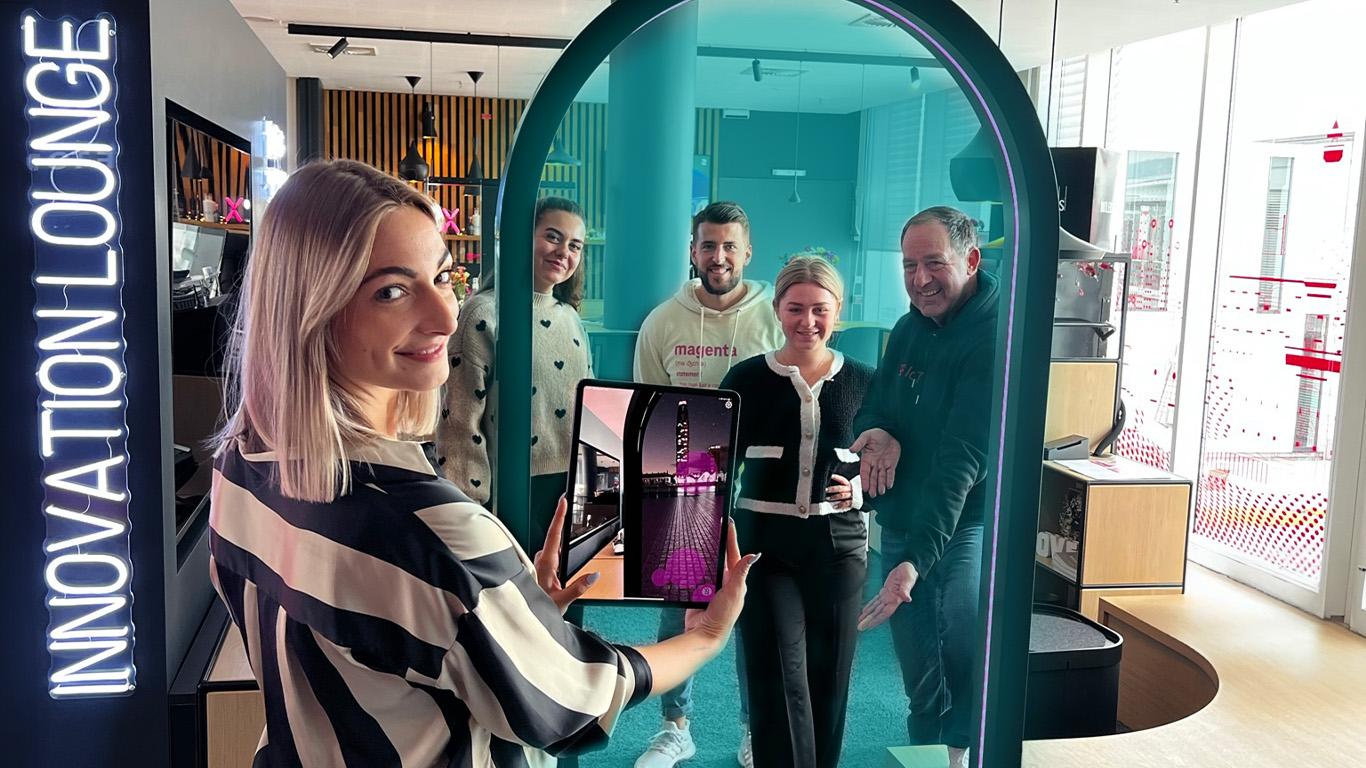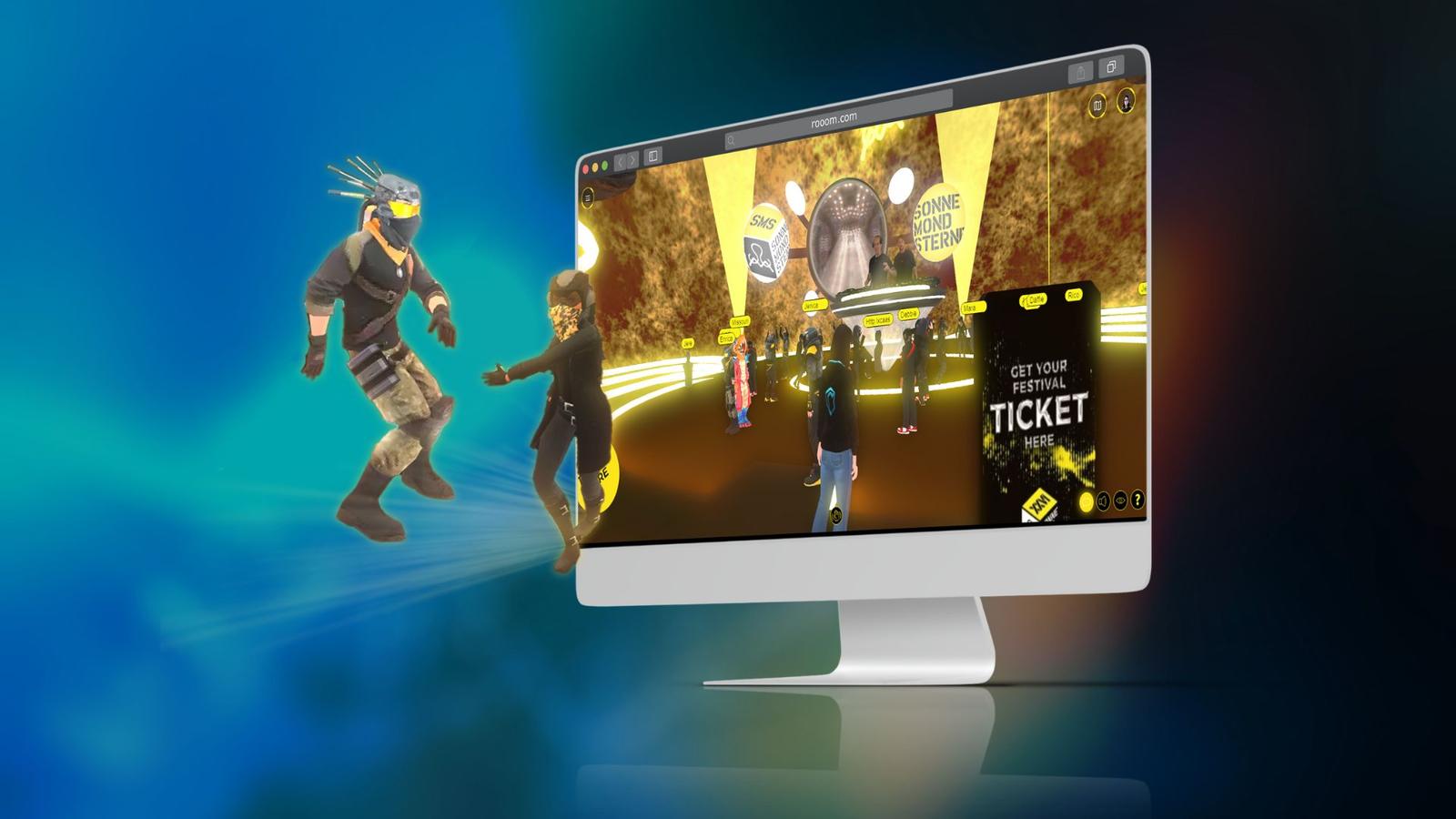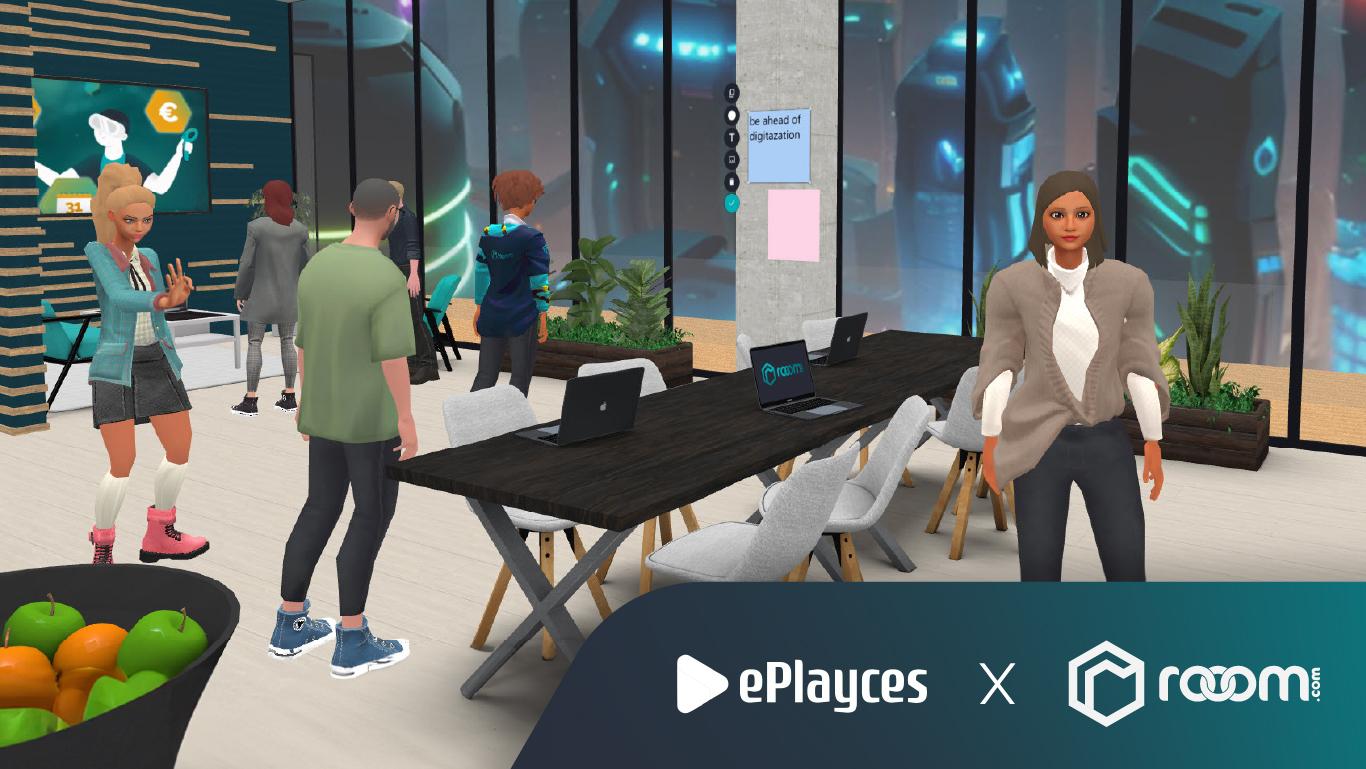Blog
Partner Talk: Serious Gaming - Employee Development 2.0

- rooom Insights & Partners
- Blog
This blog post looks at the use cases of serious gaming, particularly in virtual worlds, and explains why this concept is becoming increasingly important in the context of New Work.
Knowledge transfer via
storytelling & learning
Ensuring the employability of employees, employee retention and recruitment – these are three important goals of human ressources (HR).
"A study by MIT confirms that stories are 21 times more memorable than simple facts,"1 says Thorben Steenmanns, Head of Serious Gaming at ePlayces, market leader for serious gaming and online team events.
What is serious gaming?
Serious games are games that do not primarily serve entertainment purposes but aim to support and improve learning and work processes.
Serious games can be a helpful tool here: they create exciting, collaborative learning games in a corporate context for positive and sustainable knowledge transfer. Serious games, which consist of individual quiz modules and are presented in a gripping story that matches the company and topic, can be implemented online, hybrid or on-site.

They represent an innovative addition to the three pillars of personnel development:
- The professional or personal qualification of individual employees,
- team
- and organizational development
can be implemented as game-based learning in a well-founded and motivating way.
Definition Game-Based-Learning
Game-based learning (GBL) is an educational approach that uses games to impart knowledge and skills. It integrates gamification elements into the learning process to improve motivation and understanding. GBL aims to provide an interactive learning experience that combines theory and practice and promotes soft skills such as teamwork.
Benefits of Game-Based Learning
Thorben Steenmanns from ePlayces emphasizes the following aspects:
- Playful interaction anchors what has been learned in the long term and thus increases the efficiency of learning measures. 2
- Social interaction in multiplayer games strengthens identification with corporate values and goals. 3
- Players are intrinsically motivated because the storytelling of a game generates curiosity. Learners enjoy learning, which allows for a completely different willingness to change.
- Companies are increasingly involved in constant transformation processes, i.e. employees have to learn new skills, processes and roles. Games are therefore the perfect companion for transformation.
Serious gaming use cases
Serious gaming is used in various fields: from marketing, education and collaboration to entertainment. In educational institutions, for example, serious games are used to teach complex topics in an interactive way. In the healthcare sector, they help with physical rehabilitation or the simulation of surgical procedures. And in the corporate world, serious games are increasingly being used for training purposes, team development and to explain business processes.
Use case: Digital training game for internal audit
A browser-based scenario: an internal audit team is on the trail of fraudulent machinations in a telecommunications company. In an "Internal Audit Escape Room", which the serious gaming specialist ePlayces designed and implemented for a leading auditing company, the auditors learn about specialist methods, the use of auditing software and the auditing network in a gamified approach as they work their way through this gripping criminal case.
Use case: Gamification in the automotive sector

The automotive sector is characterized by continuous transformation. In order to support employees with the constantly changing processes and responsibilities, target group-specific, playful training can be developed. Collaborative game mechanics are used at the BMW Group to raise awareness of new responsibilities and make changes tangible, thereby increasing learning efficiency. For example, the BMW Group uses 3D Spaces for training courses, workshops and events in virtual or hybrid formats. They include interactive learning content such as multiple-choice videos and practical exercises, such as building cars out of Lego bricks, which was previously carried out in physical form on site. This increases reach, efficiency and speed of implementation, while at the same time reducing trainer capacity and costs.
Use Case: Portable escape room for more sustainability

In a portable container, which is used as part of a roadshow at several European company locations, the employees of a global beverage manufacturer are immersed in creative puzzle worlds. The aim of this gamified personnel development measure is to positively anchor the company's own sustainability initiative in the minds of over 2,000 employees.
Use Case: Christmas escape game
Together with rooom, the professionals for virtual learning experiences from ePlayces developed a Christmas escape game that not only trained the staff in their teamwork skills, but also provided great fun at the annual internal Christmas party. Whether playing the piano, deciphering mystical letters or chatting with Santa’s wife – the entire team was able to put their teamwork skills to the test in 15 minutes. Best of all, no download is required for the ultimate fun.

Realization in virtual worlds
The implementation of serious gaming in virtual worlds opens up new dimensions of learning and working. 3D technology makes it possible to create realistic scenarios in which users can learn interactively and immersively. For example, employees can simulate real work processes in a virtual environment to learn and improve skills without jeopardizing real resources or safety. A content management system such as rooomSpaces makes it possible to create your own virtual spaces without any prior knowledge, integrate interactive elements and bring the virtual world to life using avatars and voice chat. What's more, no special hardware or software is required.

The web-based 3D solutions can be used on all devices, without a download and with or without a VR headset – depending on the conditions at the respective employer. In addition, existing learning concepts and content can be easily integrated. The companies BMW, Vodafone and BSH, for example, were able to use and further expand their established learning concepts in virtual worlds.
Fewer seminars, more interaction & new work
Transformation processes, fast-moving markets, new technologies – all of this creates a need for lifelong learning. The trend is clearly moving towards tools with an edutainment (education + entertainment) character, such as Augmented Reality or gamification. This emerged from the HR Report 2020, in which 40% of the managers, HR experts and employees surveyed took part. According to the report, the number of managers using HR development measures with an edutainment character is expected to more than double in the next five years. 3D business software such as rooom makes it possible to support this development by providing a platform that everyone can use – young and old.
The use of serious gaming concepts is therefore not only an innovative and effective tool in personnel development 2.0, but will also be increasingly used throughout the entire candidate and employee lifecycle in the future: from the creation of an employer brand to recruiting, onboarding and personnel development.

The transition to the New Work philosophy, which emphasizes flexibility, autonomy and work-life integration, is driving the importance of serious gaming. These enable individual learning and work processes, transcend spatial and temporal boundaries and increase employee loyalty and motivation. In addition, advancing digitalization and technology, particularly through improved VR and AR technologies, are increasing the realism and accessibility of virtual environments, further accelerating their use in the world of work.

Game-based learning
for your company
If you want to redesign learning experiences in your company, get in touch with us and book a personal consultation. With rooom as a software professional and ePlayces to design your experience, we make it possible.
Conclusion – Serious gaming is more than just a trend
Serious gaming is a revolutionary method that has the potential to fundamentally change the way we learn and work. Playful elements are an important part of successful smart learning strategies and can be combined with avatars, virtual spaces, workshops and collaboration tools for efficient and sustainable personnel development. This combination heralds a new era of professional development and knowledge acquisition. At a time when New Work is becoming increasingly important, serious gaming will undoubtedly play a key role in the design of future working environments.
About ePlayces

ePlayces are experience specialists who design and create individual game-based experiences for personnel development, recruiting or team building. In addition to team games, they develop individual "Serious Escape Games" for companies, for personnel development and for recruiting campaigns. The growing demand for serious gaming resulted from over 3000 online escape game team events held in 2020 and 2021, some of which wanted to integrate the game concept into recruiting and training measures. They are convinced that nothing conveys brand content in such a sustainable, emotionalizing and successful way as an immersive, playful and interactive experience in which people work collaboratively. Together with rooom, ePlayces is working on virtual serious gaming scenarios. ePlayces provides the know-how and rooom the implementation via the all-in-one platform for creating, managing and sharing impressive 3D, AR and VR experiences.
Sources:
1 Sekundärquelle: Thier, K. (2006). Storytelling: Eine narrative Managementmethode. 1. Auflage, Heidelberg, 16.















